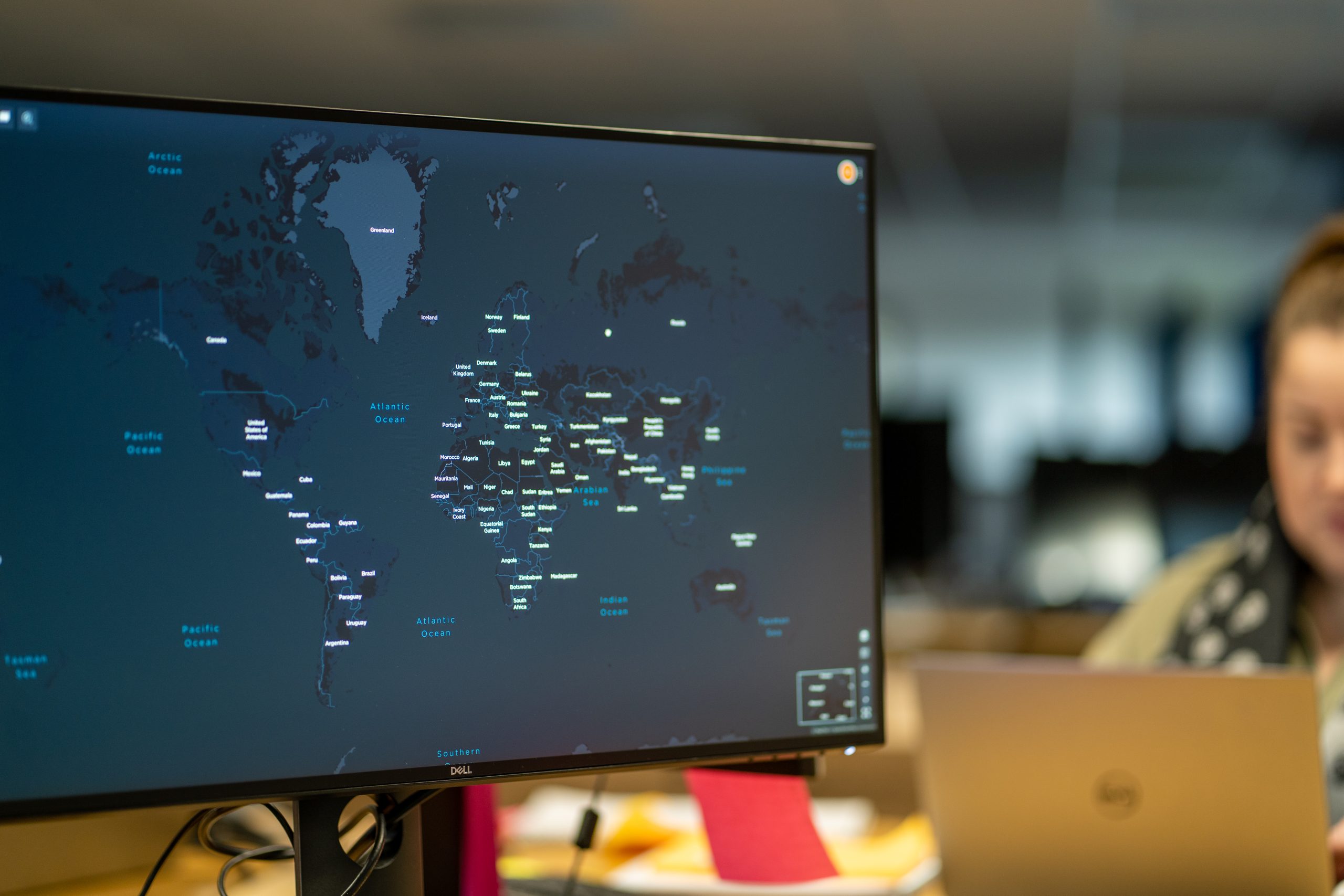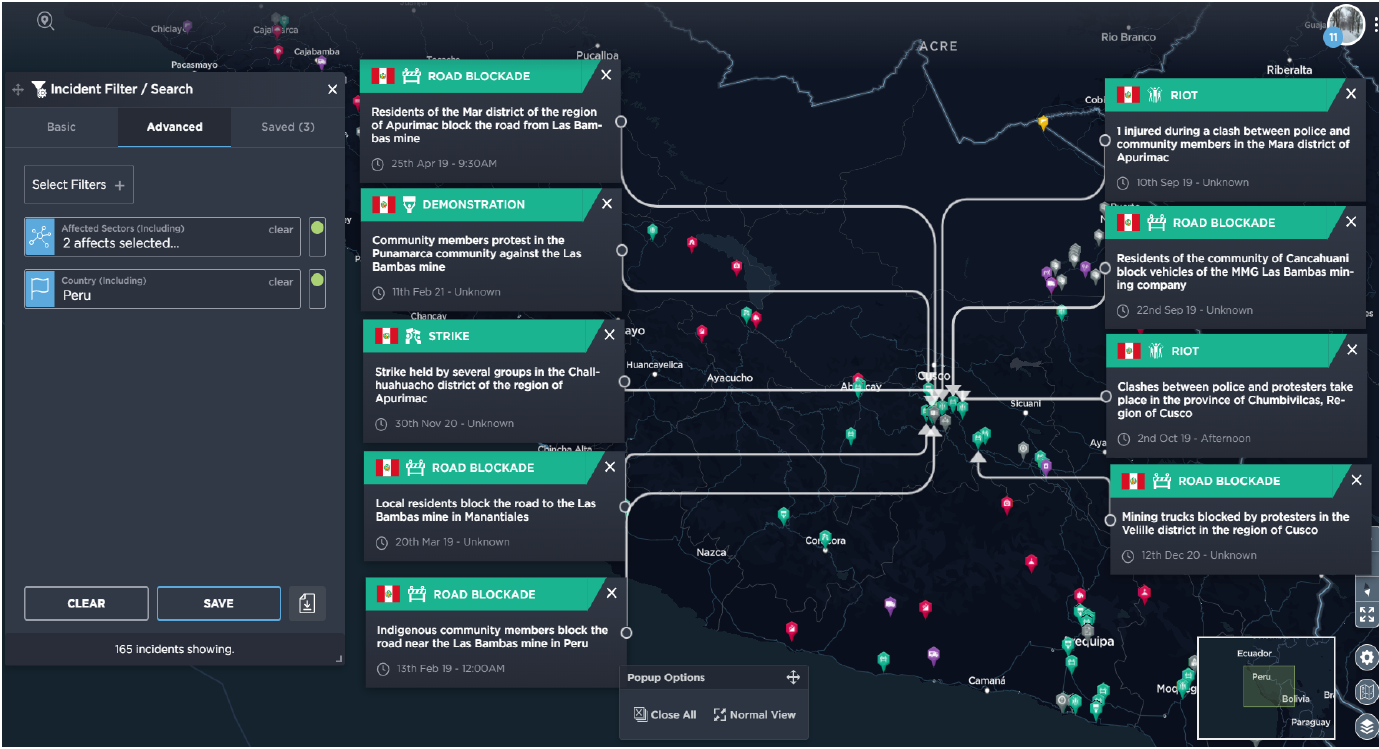The role of natural resources in conflict
Natural resource conflict is nothing new and in many regions it can be very efficiently managed and quickly resolved, without escalation. But as the demand and pressure for natural resources grows significantly, the potential for resource-based conflict to further threaten the peace of our increasingly divided world is becoming of greater concern.
What is natural resource conflict?
Natural resource conflicts are disputes over the access, use and/or control of the land’s natural resources. The extraction of these resources is often cited as one of the most critical challenges facing developing nations today due to being a key factor in triggering, escalating or sustaining violent conflicts across the globe.
A study from the United Nations Environment Programme (UNEP) found that more than 40% of internal armed conflicts over the last 60 years have been linked to the exploitation of natural resources.
Violence and conflict can occur in countries where natural resources are scarce as well as in regions where there is an abundance. In most cases, it’s mitigated through the use of legal agreements, financial deals and peace treaties; however, natural resource conflict can become problematic when the institutions involved in resolving disputes and disagreements are weak or if the political systems of the country are fragile or corrupt.
How do extractive companies play a role in natural resource conflict?
The desire to control resources such as oil, gas and minerals has long been a source of conflict. As a valuable and important commodity to many nations, these assets can quickly create division amongst societies.
Because much of the world’s non-renewable natural resources can be found in fragile states, the risk of extraction-related conflict escalating into violence is far higher. Some of the ways in which extractive companies can play a role in natural resource conflict include:
1. Poor engagement or a lack of transparency between stakeholders.
Stakeholders are those who have an economic, cultural or political interest in, or influence over, a natural resource. It’s a dynamic concept that can be all-encompassing. Local communities, for example, are a stakeholder.
When extractive companies fail to properly identify the full spectrum of stakeholders, or acknowledge their interests in the resource, conflict is far more likely.
Extractive operations have the potential to deeply impact the environment and surrounding communities in many ways. The relationship between you and the local community needs to be transparent and open, and the sharing of information must be a key priority to ensure that the community fully understands your processes and objectives. Misunderstandings or preconceptions of your operation and the impact that it may have on their land and livelihoods can trigger hostility towards your company and opposition to your project.
They must also feel included within the decision-making process from the very beginning. Empowering the community with collaboration and discussion will ensure that their concerns and needs are being acknowledged and respected. Once a community is disengaged or hostile towards your organisation or operation, it can be difficult to regain their trust.
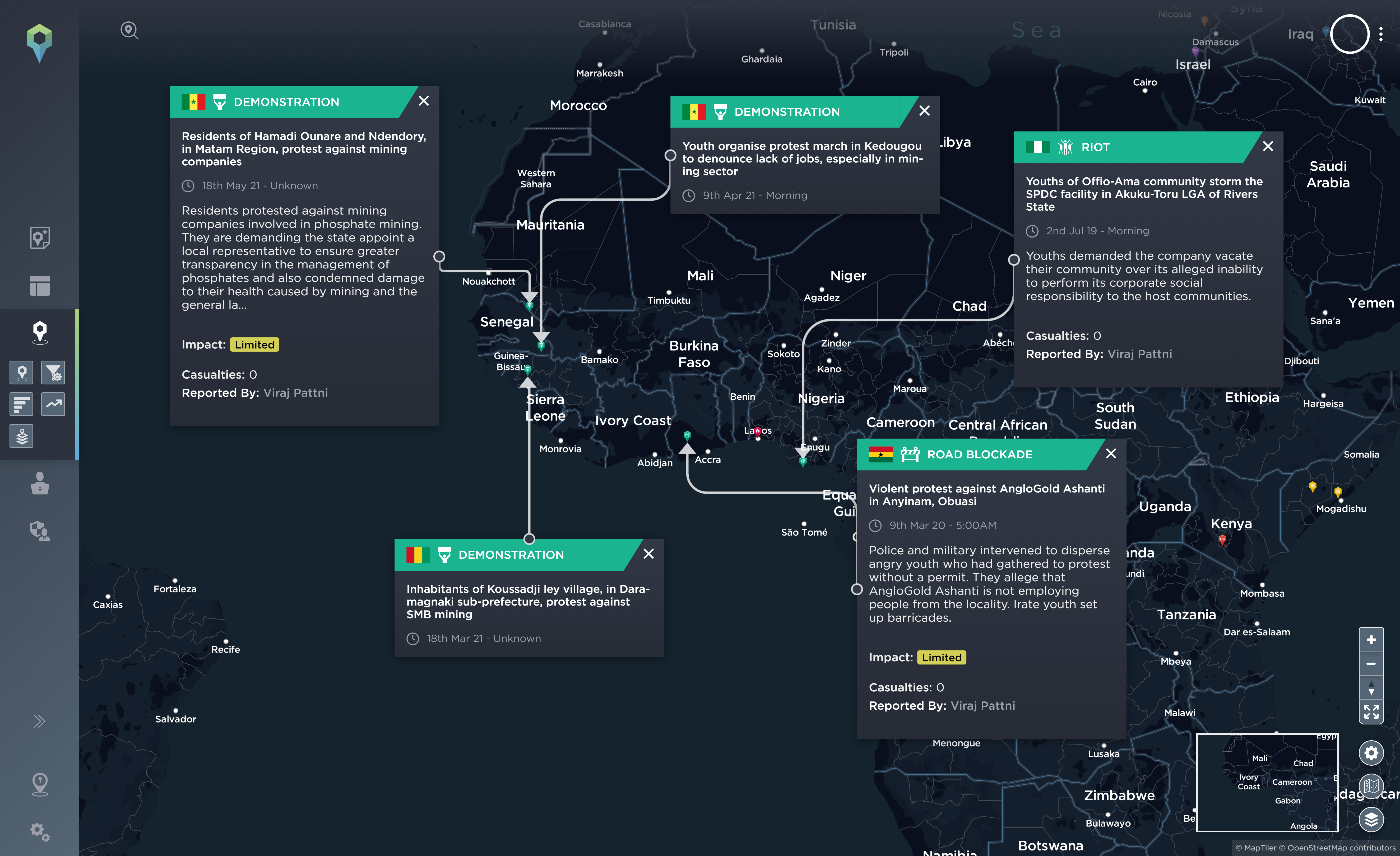
Protest and demonstration incidents targeting energy and mining organisations operating in West Africa. [Source: Intelligence Fusion]
2. Operations having an excessive impact on the economy, society or environment.
Climate change disproportionately affects developing countries, and as one of the most energy-intensive industries, extraction is one of the biggest contributors to greenhouse gases globally.
In recent years, resource-rich countries have experienced more extreme weather events, such as recurring droughts, floods and cyclones. Whilst such hazards arguably do not directly cause conflict in developing nations, they can impact water supplies and agriculture and create food insecurity, which will increase tensions and escalate hostility. Projects and extractive operations that do not adequately address the impact of their work on the environment and, consequently, the community can trigger or escalate existing conflicts.
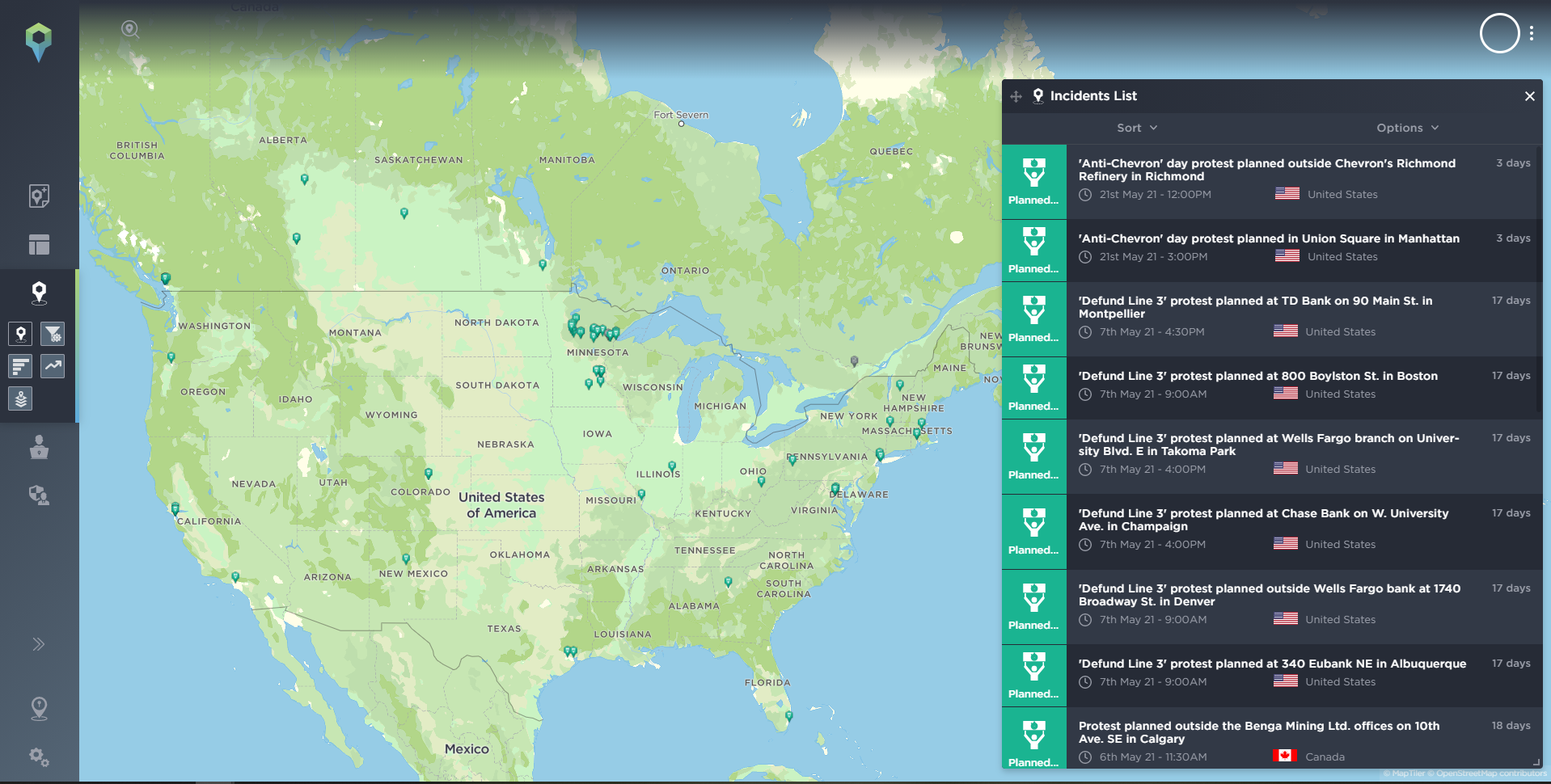
Image shows incidents of protest and criminality relating to climate change activism and targeting the mining and metals or oil and energy industries across North America in 2021. [Source: Intelligence Fusion]
3. Corruption and unequal distribution benefits.
Both abundance and scarcity of natural resources can foster corruption. This isn’t to say that the extraction companies themselves are corrupt, but their activity can often motivate or facilitate corrupt practices, given the vast revenues usually involved and the increasing remoteness of many operations.
Because historically, much of the current wealth from the world’s natural resources was too often diverted away from the populations it was derived from, communities and stakeholders may be sceptical of your business’s intentions from the outset.
Due to extractive companies needing strong relationships with governments in order to gain or retain access to the land’s natural resources, businesses can immediately be seen as enabling corruption. The increased concentration of natural resource extraction in countries already suffering from significant levels of corruption and poor governance means that understanding the corruption challenges within developing nations can be key to addressing concerns and preconceptions at the early stages of your project.
Distributing the benefits of your activity equally extends beyond royalties and revenue, but can take the form of employment, business opportunities, community infrastructure and other investment projects. If stakeholders believe that they are burdened with responsibilities yet enjoy no benefits, those marginalised will begin to oppose your extractive activities.
What is the cost of natural resource conflict to the extractive industry?
Natural resource conflict can impose both direct and indirect costs on companies within the extractive sector. The direct costs refer to the increased cost of protecting assets in areas where conflict is more likely, whilst the indirect costs of resource-based conflict affect the environment in which you operate, which in turn costs money to the organisation.
The direct costs incurred by conflict can span across your entire organisation. Not only could you face physical damage to property and assets that will delay production, but businesses operating in high-risk areas can often experience difficulties hiring initially due to the extractive industry being one of the most vulnerable to kidnap and ransom activity, as well as extortion.
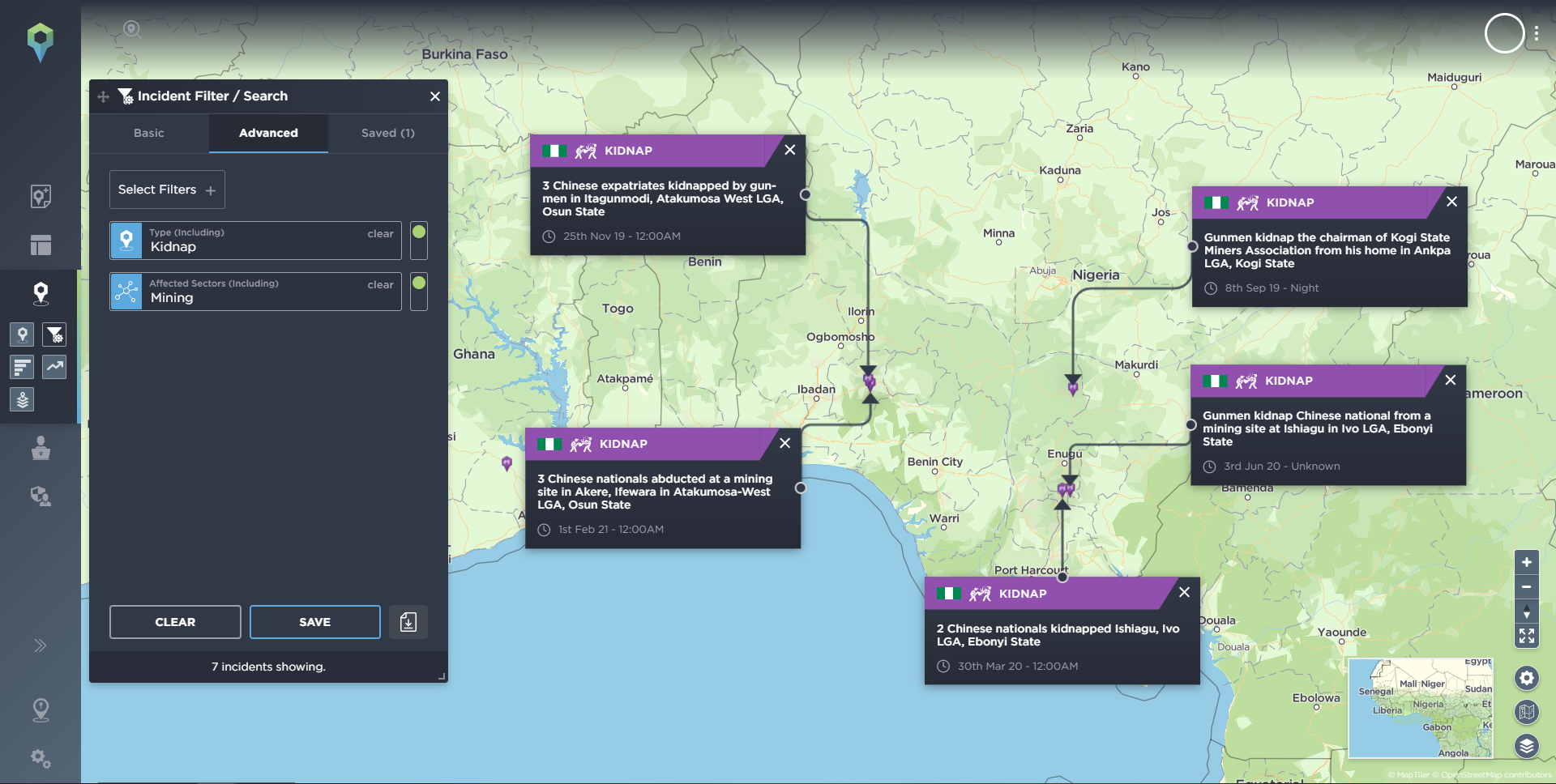
Image shows a map of Kidnap and Ransom incidents targeting mine workers in Nigeria. [Source: Intelligence Fusion]
How can extractive businesses mitigate natural resource conflict?
Natural resource conflict is fluid, therefore the appropriate mitigation and management strategies must be carried out throughout the project’s lifespan. Community engagement, for example, should be implemented as early as possible but maintained throughout the course of your operation. Risk assessments are also required to be dynamic and evolve alongside your project.
In order to mitigate natural resource conflict and build operational resilience, you’ll need to:
- Continuously monitor the security situation within the country
- Track changing sentiment and emerging threats
- Maintain open and honest communication with the local community
- Quickly react to political, economic or societal developments that may trigger unrest
Having access to reliable, timely data can ensure that you have a comprehensive view of developing risks. If your data can be fed to you around the clock and tailored to your exact requirements, this view becomes more predictable and allows you to identify emerging trends, indicators of conflict or potential hotspots.
At Intelligence Fusion, we offer a tailored intelligence solution that aims to provide you with a more valuable insight into the security landscape. We do this by conducting an Intelligence Collection Plan (ICP) with every client.
Regularly reviewed, your ICP helps our 24/7 analyst team to develop a deep understanding of your operations as well as who or what you’re protecting. We’ll use the information to close gaps in knowledge and provide clear direction for the collection process. We believe that when the intelligence collection and reporting are shaped to closely reflect your operations, you get a more precise insight into your areas of interest and the impact on your people, assets and reputation.
Reliable, useful data is key to taking a proactive approach to natural resource conflict, and will be the foundation of those mitigating strategies that will carry your project through to completion without disruption.
As well as new and emerging incidents, we can provide you with our entire historical database of over 1,200,000 reports. Being able to dig into past trends as well as the political stability, levels of unrest, or active groups can provide an unparalleled advantage when it comes to identifying and addressing the causes of resource-based conflict. Because if extraction companies fail to acknowledge these drivers as well as the concerns and needs of the communities, they will not only damage their reputation and jeopardise future opportunities but also risk the safety of their employees and assets.
Where can I find out more?
Companies working in the extractive industry are under increasing pressure to be more socially responsible, and community engagement is essential for gaining a social license to operate in all areas of the world.
To help, we’ve designed a free toolkit for security professionals across the extractive industry. The resource provides a practical outline for building relationships with local communities and the processes and tools required to be successful, including:
- What is community engagement?
- Why is it important to the extractive sector?
- What can happen without effective community engagement?
- How do I develop a community engagement strategy?
- What do I need to consider long-term?
